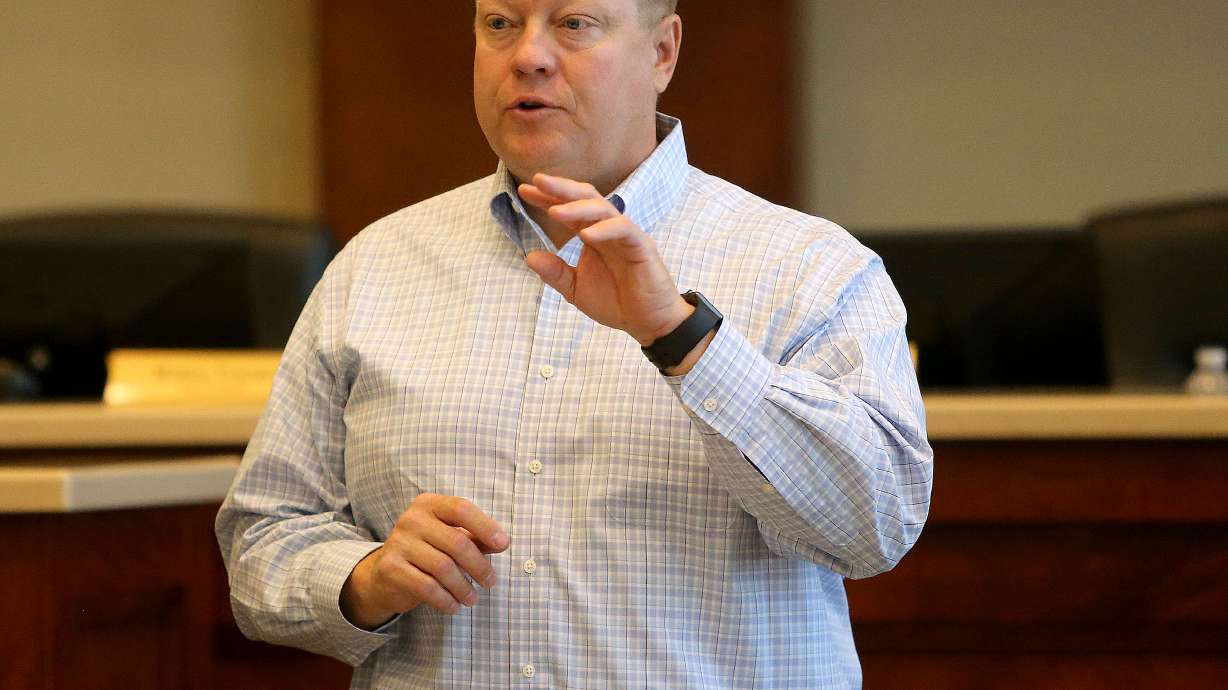Estimated read time: 4-5 minutes
This archived news story is available only for your personal, non-commercial use. Information in the story may be outdated or superseded by additional information. Reading or replaying the story in its archived form does not constitute a republication of the story.
DRAPER — Mayor Troy Walker is finalizing a plan to acquire 5,000 antibody tests in order to sell to businesses and citizens in Draper and five neighboring cities. The tests will come from Healgen Scientific, a U.S.-based subsidiary of a Chinese company, and will be administered by Utah-based company RapidScreen Solutions.
"Draper City is cognizant of our economy and wants to make sure we get people back to work safely," Walker told KSL.com. "Increased testing is one method to help us track the virus and provide peace of mind for individuals and businesses."
The potential problem, though, is there are still a lot of unanswered questions about antibody tests and their usefulness, especially for individual people. Utah Department of Health spokesman Tom Hudachko said that, to his knowledge, the state has not consulted on the plan or with RapidScreen Solutions. Walker said leaders at the county level are aware.
Walker announced the plan — which also includes Riverton, Bluffdale, Herriman, Lehi and Vineyard — at a Silicone Slopes virtual town hall meeting on Wednesday, pitching the idea for big businesses to test employees in order to help further reopen the economy. Antibody tests were initially seen as a potential way back to normalcy and would, in theory, show who was already immune to the disease and could return to their normal life.
It hasn’t been quite that easy. In a pandemic, things rarely are.
Antibody tests have been known to have high false-positive rates, meaning a test could show someone has been infected with COVID-19 when, in fact, they actually haven’t. And maybe worse, a positive antibody test might not mean as much as once thought. State epidemiologist Dr. Angela Dunn reiterated earlier this week that it’s still unclear if antibodies even provide immunity from COVID-19.
The UDOH website states it "does not recommend using COVID-19 antibody tests for diagnosing disease or determining immunity to COVID-19" and that "current COVID-19 antibody tests are best used for scientific research or to determine disease spread in a population."
In short, the tests haven’t been proven to be reliable enough, and there’s still much to be learned about the disease to put too much stock in the results. The U.S. Food and Drug Administration has also only given an "emergency use authorization" to five full antibody tests — the Healgen test is not one of them.
So at this point, the tests should be seen as more of a data collection device than the game-changer they were originally hoped to be. The tests have been effective at showing rates of infection in a community, where errors in singular results have less of an impact. Dunn said the state is currently planning to roll out antibody testing and is identifying the communities that would benefit most from it.

Walker said he gets the tests aren't perfect, but he still thinks they can be helpful for his city.
"We understand there is still discussion about the effectiveness of antibody tests," Walker said. "When we begin offering our antibody tests, we will let participants know that this is not a diagnosis. Participants will still need to make their own decisions about their health and safety."
But with questions over the necessity of the tests for individuals, the multi-city plan is a bit of a gamble. The cities are fronting the cost of the tests with the hope there will be enough demand to recuperate the money through sales. The tests will cost approximately $49 each, which means the cities will be collectively spending around $250,000 upfront to obtain the tests.
"We believe creating an opportunity for testing is a step in the right direction," Walker said. "We will adjust as necessary if new information comes out about the tests."
In mid-April, Draper did a successful test run of the program. The city set up a testing center in the parking lot of The Living Planet Aquarium and tested 112 people in around 70 minutes. Walker said he knew of four people that had previously contracted the virus who were tested — the Healgen test found antibodies in all four.
Healgen has applied for an "emergency use authorization" for the test, but it has not yet been approved. The test, though, has been heavily used by the Christus Health hospital network based in Texas to test healthcare workers. Healgen’s website claims the test has a 97% accuracy rate.
Walker said the city will also offer saliva tests, administered by Draper-based Spectrum Solutions, to confirm COVID-19 if a person tests positive for antibodies.
"We have heard that the state is planning to conduct an antibody study on 12,000 individuals to determine the level of antibodies statewide," Walker said. "The study is intended to give data and a conversational platform to discuss what immunities may or may not be in the community. We feel our efforts align with the state in being able to collect more data and better understand how the virus and immunities work."










